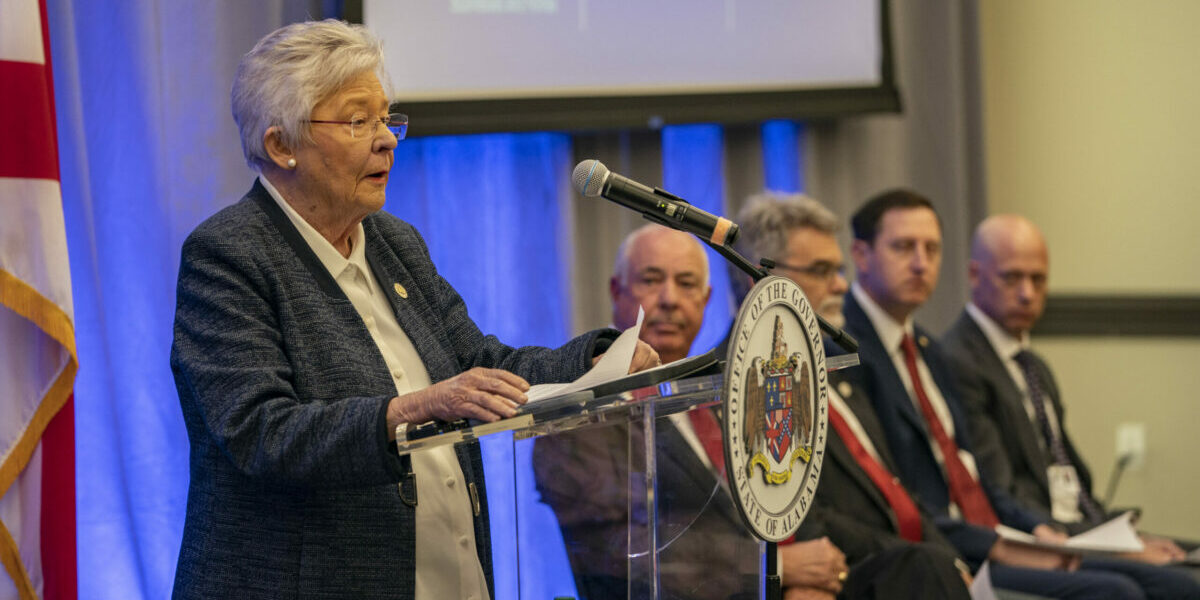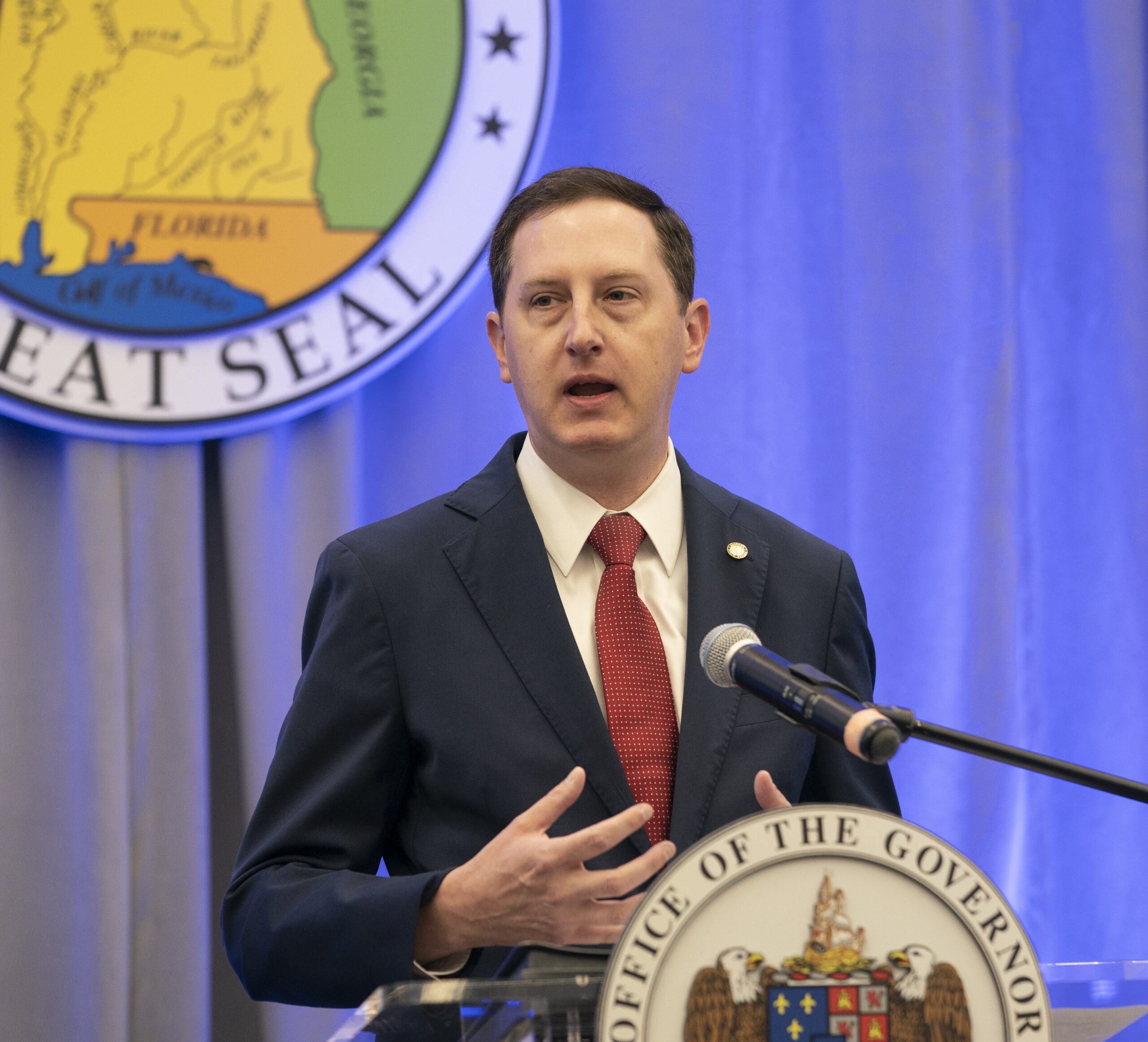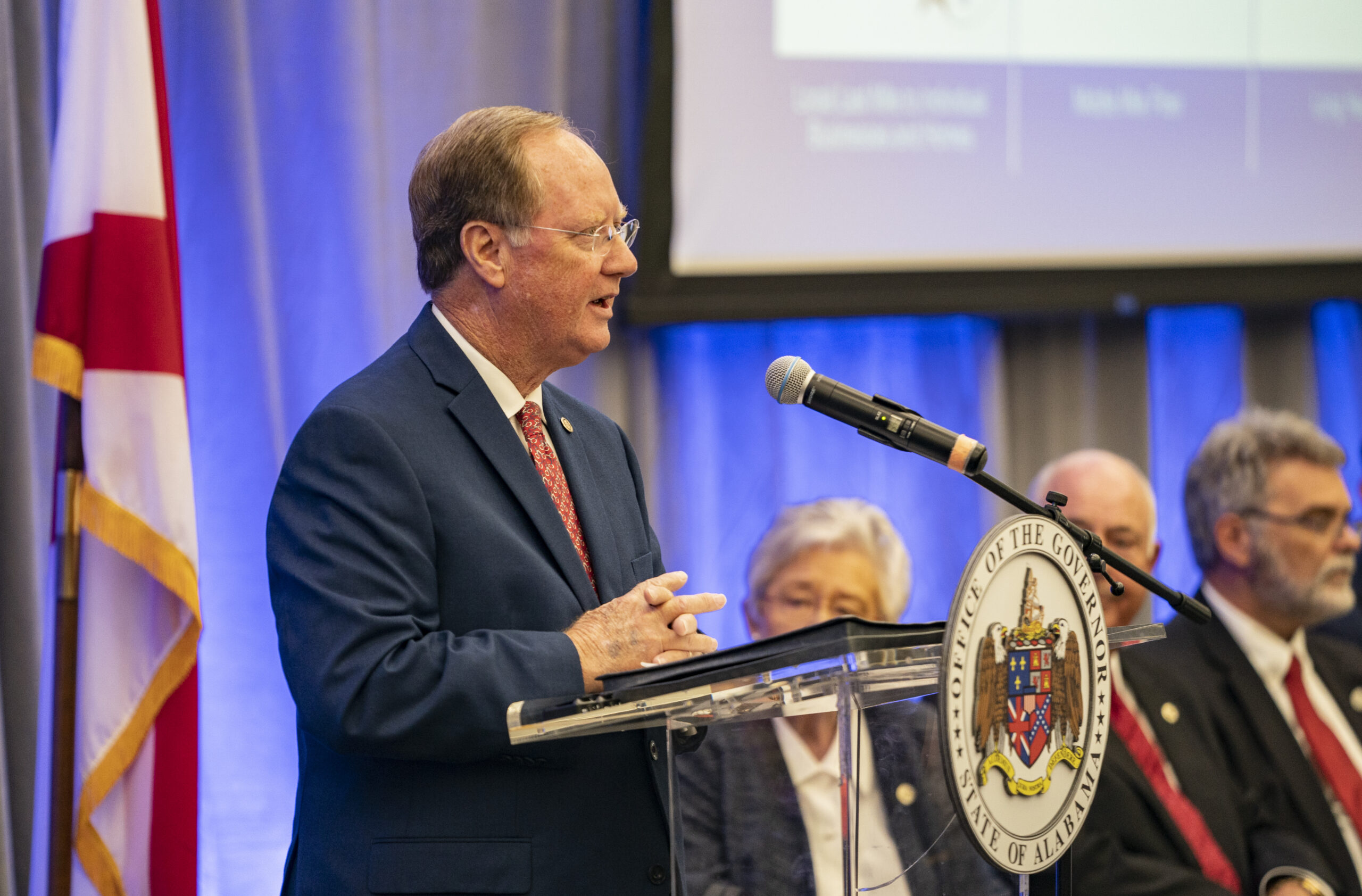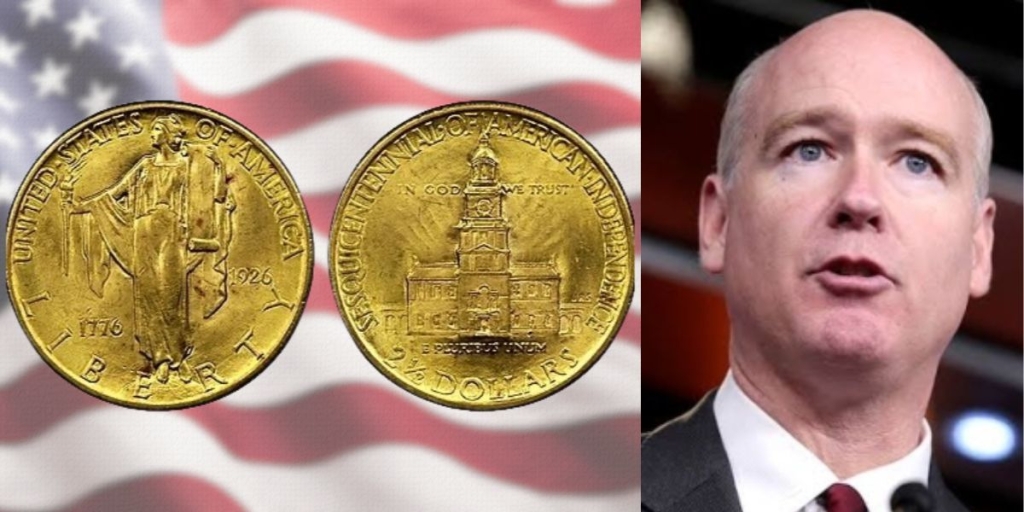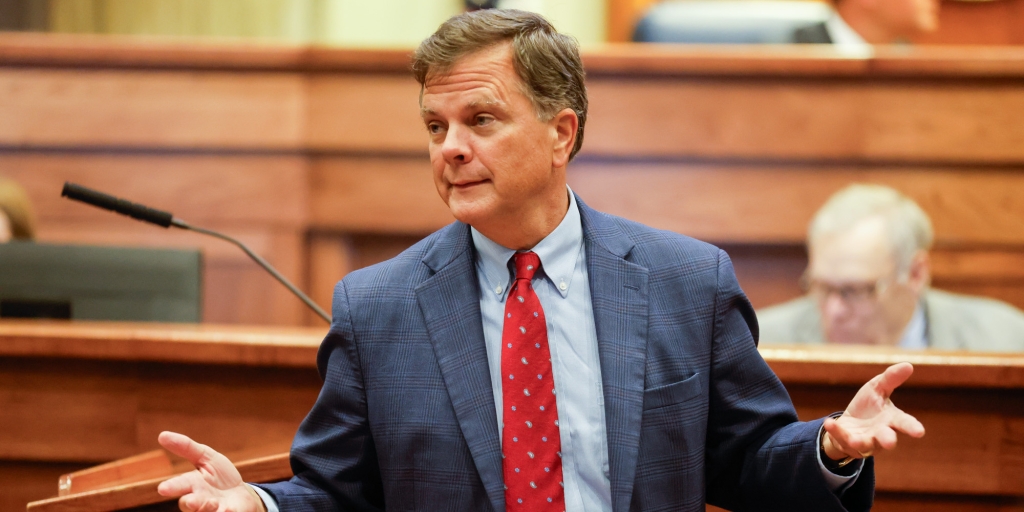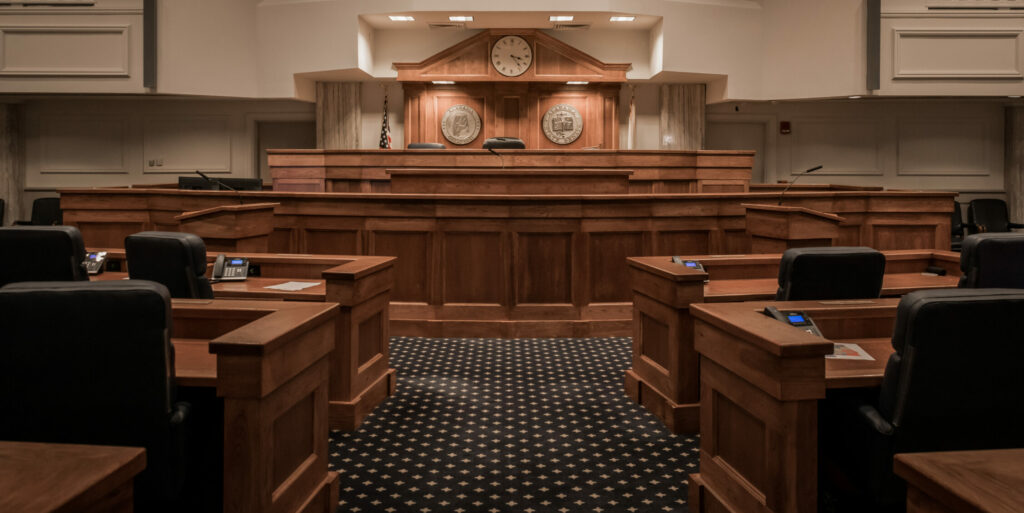As Alabama continues to lead the nation in broadband expansion planning, state leadership has undertaken the most ambitious effort to date in bolstering digital infrastructure.
Gov. Kay Ivey gathered with state and area leadership Tuesday to announce the awarding of an $82.45 million grant to expand high-speed services throughout the Yellowhammer State. The announcement was made at the Central Alabama Electric Cooperative near Prattville.
The grant will be utilized by Fiber Utility Network, an eight-member corporation of rural electric cooperatives, to fund a “middle-mile” broadband network that will have a statewide impact.
The Fiber Utility Network consists of the following co-ops:
- Central Alabama Electric Cooperative
- Coosa Valley Electric Cooperative
- Covington Electric Cooperative
- Cullman Electric Cooperative
- Joe Wheeler Electric Membership Corporation
- North Alabama Electric Cooperative
- PowerSouth Energy Cooperative
- Tombigbee Electric Cooperative
The Alabama Middle-Mile Network project involves filling in gaps in broadband expansion, according to the governor’s office. The cost-effective effort seeks to provide broadband service availability to residents in rural areas.
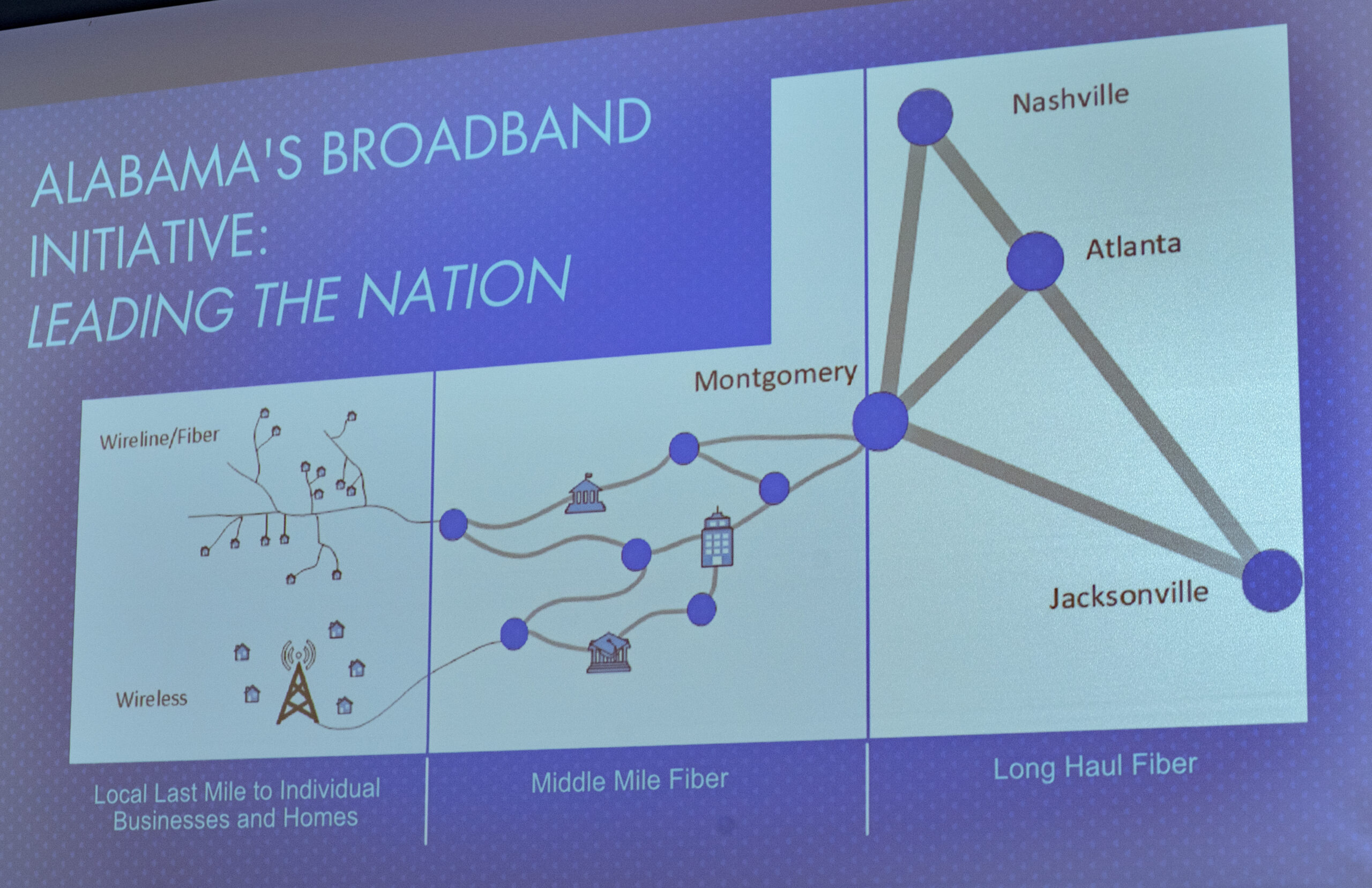
Ivey said that the project would serve as the “model for the nation” in broadband expansion efforts.
“Achieving full broadband coverage is a journey, not a short trip, and today is an important step toward completing that journey,” said Ivey. “The Alabama Middle-Mile project – the infrastructure setting part of this journey – is going to lead our state to be the model for the nation when it comes to providing broadband capabilities.
“In 2022, being able to be connected at home, work or on the on go is absolutely necessary, and this is certainly key to making that a reality.”
The middle-mile network formed by the cooperatives will connect nearly 3,000 miles of existing and new fiber infrastructure within a three-year period. A result of the initiative will be enhanced access to unserved areas for the last-mile projects that make broadband available to homes, businesses and schools.
Once connected, residents will have the opportunity to become a customer of the last-mile broadband providers. The project’s funding was made available though the congressionally-approved American Rescue Plan Act.
Nearly 36% of the Alabama’s $772 million in ARPA funds, or $276 million, was approved by the Legislature in January to be used to deploy high-speed Internet to rural and underserved areas of the state.
RELATED: Gov. Kay Ivey transfers $276M in ARPA funds for broadband expansion
The Alabama Department of Economic and Community Affairs is administering the award through its Alabama Digital Expansion Division.
ADECA Director Kenneth Boswell said the project would serve as a “springboard” in fortifying the state’s digital infrastructure.
“The project is the springboard to supplying broadband services for rural residents, businesses, educational facilities and other community anchors,” said Boswell. “I commend the Fiber Utility Network for their willingness to undertake this necessary step to ensure more Alabamians have access to these services.”
Fiber Utility Network President Tom Stackhouse expressed gratitude to state leadership for acting to provide vital broadband services to underserved Alabamians.
“The eight electric cooperatives that make up the Fiber Utility Network are honored to be a part of building a middle mile network to bring internet service closer to those Alabamians,” said Stackhouse. “We want to thank Governor Ivey and the staff at ADECA for the vision, leadership and assistance to make this a reality.”
Senate President Pro Tem Greg Reed (R-Jasper) and House Speaker Mac McCutcheon (R-Monrovia) were accompanied at the announcement by three key members of the Legislature who played a critical role in spearheading the state’s broadband expansion efforts.
Senate Majority Leader Clay Scofield (R-Guntersville), chairman of the Alabama Digital Expansion Authority board, hailed the Alabama Middle-Mile Network project a being a “great leap forward” in expanding broadband.
“In terms of broadband, this is a great leap forward,” said Scofield. “This will really put us at the forefront of broadband in Alabama, and it will help us expand much quicker and at a more economical cost.”
The project will have a profound impact on Alabama’s Black Belt region, according to Senate Minority Leader Bobby Singleton (D-Greensboro).
“This is a tremendous step in the right direction to digitally connect all of Alabama, especially the Black Belt,” said Singleton, a member of the Alabama Digital Expansion Authority board. “I am proud to stand with Governor Ivey to award these needed funds to elevate these communities and provide a service that will have an impact on the entire state.”
State Rep. Randall Shedd (R-Cullman), co-chairman of the Alabama Digital Expansion Authority Board, said the project “is probably the most significant step we’ve taken to get high-speed Internet access to everyone in Alabama.”
Dylan Smith is the editor of Yellowhammer News. You can follow him on Twitter @DylanSmithAL




